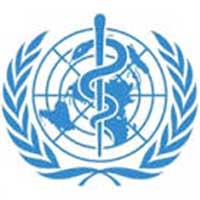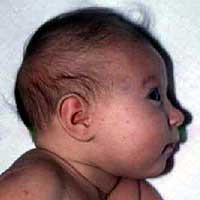In a development not seen in 20 years, local transmission of malaria has been reported in the U.S., with five cases surfacing in the past two months. Four cases were identified in Florida, with one more appearing in Texas.
Mosquito
Dengue Fever: Unraveling the Mysteries of a Mosquito-borne Menace
In the vibrant arena of Earth’s biodiversity, one of the most enigmatic and perilous phenomena is the transmission of diseases by organisms. The perpetrators are often tiny creatures that stealthily invade our bodies, acting as transporters for deadly pathogens. One such diminutive creature is the ‘Aedes aegypti’ mosquito, the primary vector of dengue fever.
Zika virus becoming international emergency : WHO
World Health Organisation has declared an international emergency over the explosive spread of the mosquito-borne Zika virus, which is linked to birth defects in the
Microcephaly birth defect rate surged after Zika outbreak in Brazil
Brazilian health ministry reported a rise in the number of newborn babies with uncommonly small heads – microcephaly, and suspect that the surge is linked
Dengvaxia – vaccine against dengue fever available now
The first-ever vaccine against dengue fever which affects up to 400 million people per year will be publicly available for the first time after being
Understanding West Nile Virus – ecology, virology, epidemiology, clinical characteristics, diagnosis, prevention
Review Article Describes Epidemiology, Characteristics and Prevention of West Nile Virus – Researchers conducted a review of the medical literature and national surveillance data to examine the ecology, virology, epidemiology, clinical characteristics, diagnosis, prevention, and control of West Nile virus.
Infected female malaria mosquitoes more attracted to human odour
Unlocking the manipulation of mosquitoes by malaria parasites – Female mosquitoes infected with malaria parasites are significantly more attracted to human odour than uninfected mosquitoes. This was demonstrated in a laboratory setting in which infected female Anopheles gambiae sensu stricto mosquitoes were attracted to human odours three times more than mosquitoes that were not infected with the malaria-causing Plasmodium falciparum parasite.
Bed nets use could eradicate malaria
Net advantage — Study finds use of bed nets by 75 percent of population could eradicate malaria – Malaria, the leading cause of death among children in Africa, could be eliminated if three-fourths of the population used insecticide-treated bed nets, according to a new study from the National Institute for Mathematical and Biological Synthesis (NIMBioS).
Cell phone data helps to curb spread of malaria
Using cell phone data to curb the spread of malaria — Study in Kenya finds measuring movement of people could lead to more effective ways to control spread of disease – New research that combines cell phone data from 15 million people in Kenya with detailed information on the regional incidence of malaria has revealed, on the largest scale so far, how human travel patterns contribute to the disease’s spread. The findings indicate that malaria, in large part, emanates from Kenya’s Lake Victoria region and spreads east, chiefly toward the capital, Nairobi.
New malaria vaccine may make all strains of malaria parasite ineffective
New candidate vaccine neutralizes all tested strains of malaria parasite – A new candidate malaria vaccine with the potential to neutralise all strains of the most deadly species of malaria parasite has been developed by a team led by scientists at the University of Oxford, UK.





